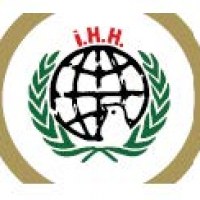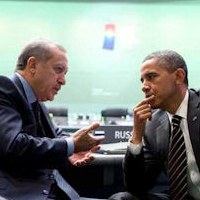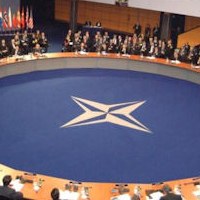![]()
Sun, July 03, 2011 | The Meir Amit Intelligence and Terrorism Information Center

Turkish PM during a meeting with Iran's Supreme Leader Khamemei in Iran, 2009. The website Khabar Online also brought up doubts over the Turkish involvement in the Arab world, arguing that Turkey’s involvement reflects a scenario prepared by Saudi Arabia to weaken Iran’s regional influence.
Iranian press voices criticism of Turkey over its stance towards Syrian regime
Iranian media have recently taken a critical stance on the change in Turkey’s policy towards Syria following the riots that had broken out in that country.
This stance could be seen in a number of commentary articles published on the Iranian media, strongly criticizing Ankara’s approach towards the developments in the Arab world in general and Syria in particular.
The conservative daily Keyhan said that, by distancing itself from the Islamist approach, Turkey is facing considerable domestic and regional challenges as a result of the part it plays in the regional “American jigsaw puzzle” and its anti-Syrian policy.
The daily criticized Turkey’s attitude on the developments in Syria and its attempts to exert pressure on Hamas to recognize Israel as part of the internal Palestinian dialogue in Cairo.
According to the daily, Turkey cannot play an independent major role in the Islamic world since the religious centers of the Muslim world are located in Iran, Egypt, and Saudi Arabia, and because the unpleasant memories from the Ottoman era are still lingering for the Arab nations. To influence regional developments, therefore, Turkey must cooperate with Iran and Egypt. Attempts to gain the approval of the U.S., Europe, and Saudi Arabia will not help Ankara affect the developments in the region, and breaking away from the Islamic approach will not help it achieve the support of the Muslim nations.
The daily argued that Turkey’s regional policy is cause for considerable discontent among the minorities living in the country: the Shi’ites in Turkey would like to see it tighten its relations with Iran and Syria, while the Kurds are dissatisfied with the disagreements between the governments in Ankara and Baghdad.
Keyhan warned that, unless Turkey changes its attitude, it will have to deal with considerable resistance from Iran, Iraq, and Syria. This will compromise Turkey’s position since it depends on cooperation with those countries to entrench its regional influence (Keyhan, June 27).
The daily Hemayat also strongly criticized Turkey’s policy towards Syria and even accused it of helping the U.S. set the stage for a military intervention in Syria. The daily claimed that Turkey has fallen into the trap set by the enemies of the resistance front, warning it that they are interested not just in hitting the resistance but also in compromising Turkey’s position in the region (Hemayat, June 28).
The website wondered how Turkey, a secular country with a long-standing determination to join the EU, could now reach out to the Arab world. According to Khabar Online, Turkey has realized that, despite its unique position in the region, it cannot easily influence the developments in the Arab world due to the secular policy of its past leaders. Accordingly, Saudi Arabia has laid the groundwork for improving Turkey’s image using PR activities and investments. The widely-publicized conflict between Erdogan and President Shimon Peres, which turned Erdogan into the “Rambo” of the Middle East, and the sending of the aid ship to the Gaza Strip, were designed to create an impression that would make it possible for Turkey to broaden its influence in the Arab world. These events gave Turkey a chance to intervene in the revolutions of the Arab world and help itself to a piece of the “Arab pie”, as shown by its involvement in the events in Syria.
According to the website, Turkey seeks to take advantage of the developments in the Arab world for its own interests, and has made no considerable change in its positions. If Turkey changed its stance towards the Palestinians, for example, it would have to cut off its ties with Israel and open a Palestinian embassy in Ankara (Khabar Online, June 25).
Press TV, an Iranian English-language website, has also condemned Turkey’s policy towards the events in Syria, going as far as to accuse it of being responsible for the riots in that country and claim that the weapons used by the demonstrators had been smuggled to Syria from Turkey (Press TV, June 9).



 RSS
RSS










Iranian press voices criticism of #Turkey over its stance towards Syrian regime | #Syria #Iran http://bit.ly/qZxMfc
Iranian press voices criticism of #Turkey over its stance towards Syrian regime | #Syria #Iran http://bit.ly/qZxMfc